Blogs and Articles
Safe Water and Sanitation for all?
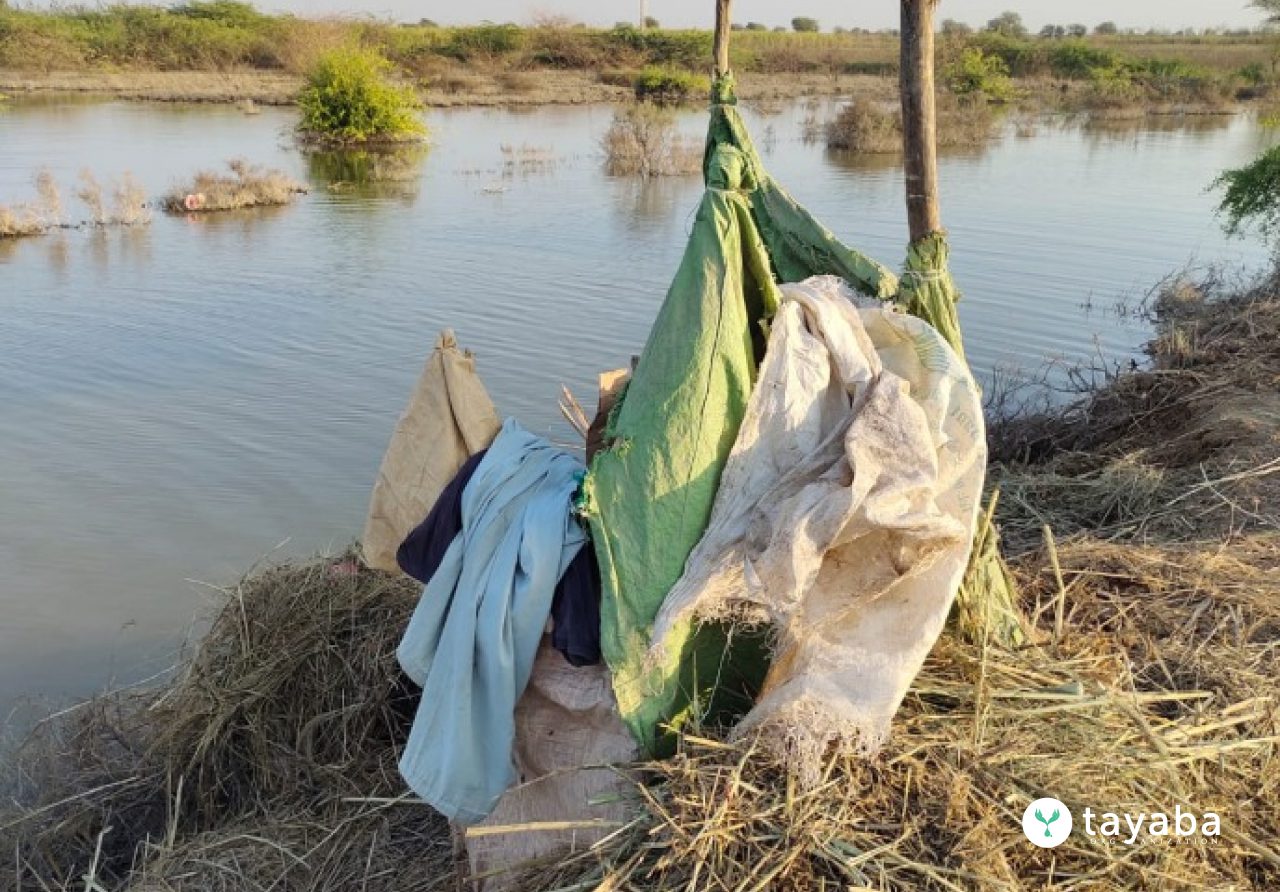
Photo by Tayaba Organisation – All Rights Reserved
Safe and sustainable access to adequate sanitation is exceptionally vital for every aspect of human development.
World Toilet Day 2022, under the campaign ‘making the invisible visible’ strongly advocates for addressing the sanitation and hygiene crisis that impacts the most marginalised and impoverished communities of the world and perhaps hence fails to inspire global discussions on prestigious and influential forums which are capable of inducing global action.
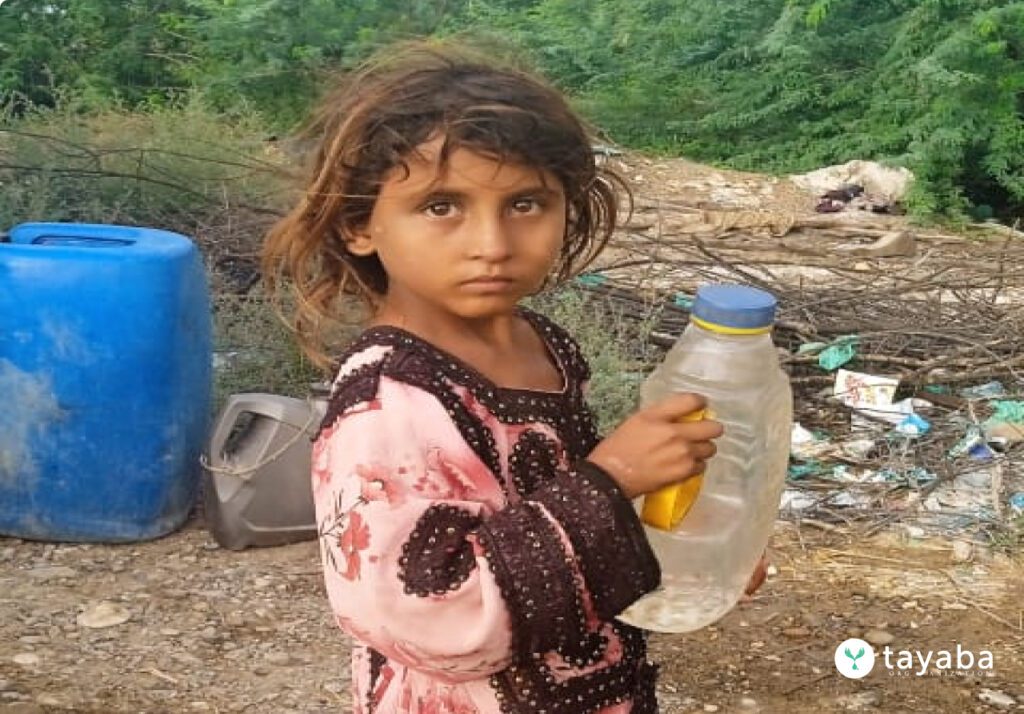
Photo by Tayaba Organisation – All Rights Reserved
The most notable aspect of insufficient safe sanitation, in addition to worsening public health and well-being, is the breach of privacy, security, and personal safety leading to increased stress, anxiety, and shame experienced by the victims of the sanitation crisis, especially females.
Females reportedly feel shameful and uncomfortable while defecating openly as they become vulnerable to suffering physical and sexual violence at the hands of their male counterparts.
This has been widely observed in relief camps established after the floods in Pakistan. “How can my daughters go alone to defecate? They are afraid that a man might harass or attack them” – A female flood survivor (DailyTimes 7 September 2022)
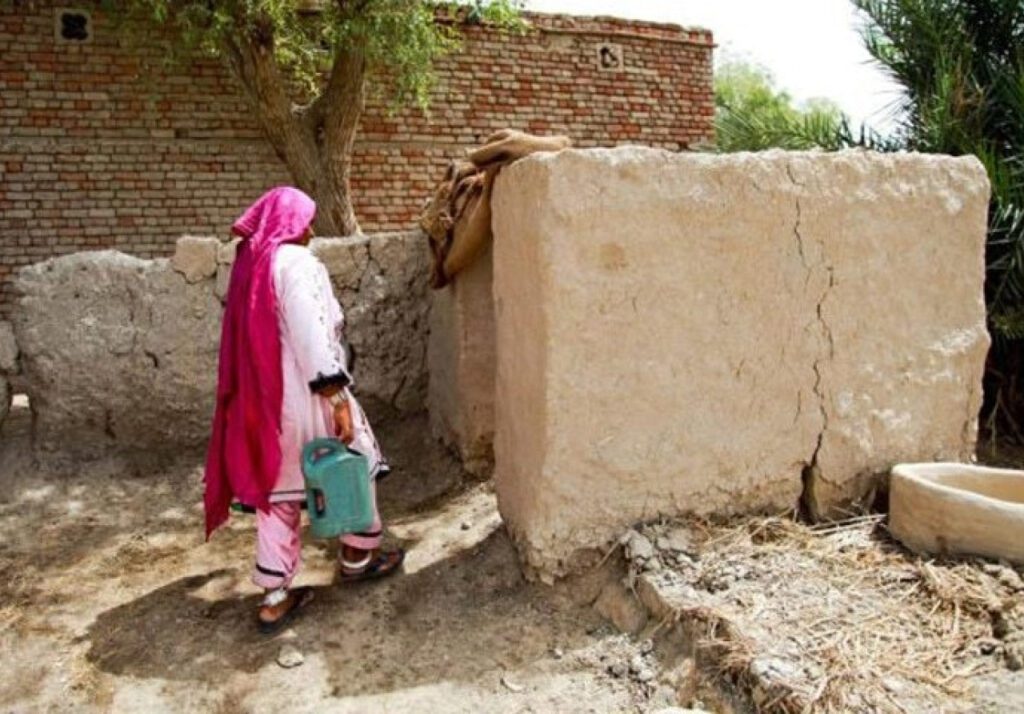
Photo by Unicef Org
As highlighted by UN forums, inadequate access to basic sanitation is a human rights violation, especially for females who are most impacted by it.
The failure to recognise the gendered impact of inadequate sanitation on global platforms can be attributed as a form of gender discrimination.
Females are most impacted by unhygienic conditions since it can have hazardous implications on their menstrual health making them prone to various infections and diseases. Consequently, they face additional barriers in accessing social empowerment and educational and financial growth opportunities. UNICEF reveals further distressing health impacts of lack of sanitation; faecal contamination of the environment resulting from unhygienic practices such as open defecation greatly increase the risk of child mortality, poor health, undernutrition and stunted growth, and can potentially inhibit cognitive development.
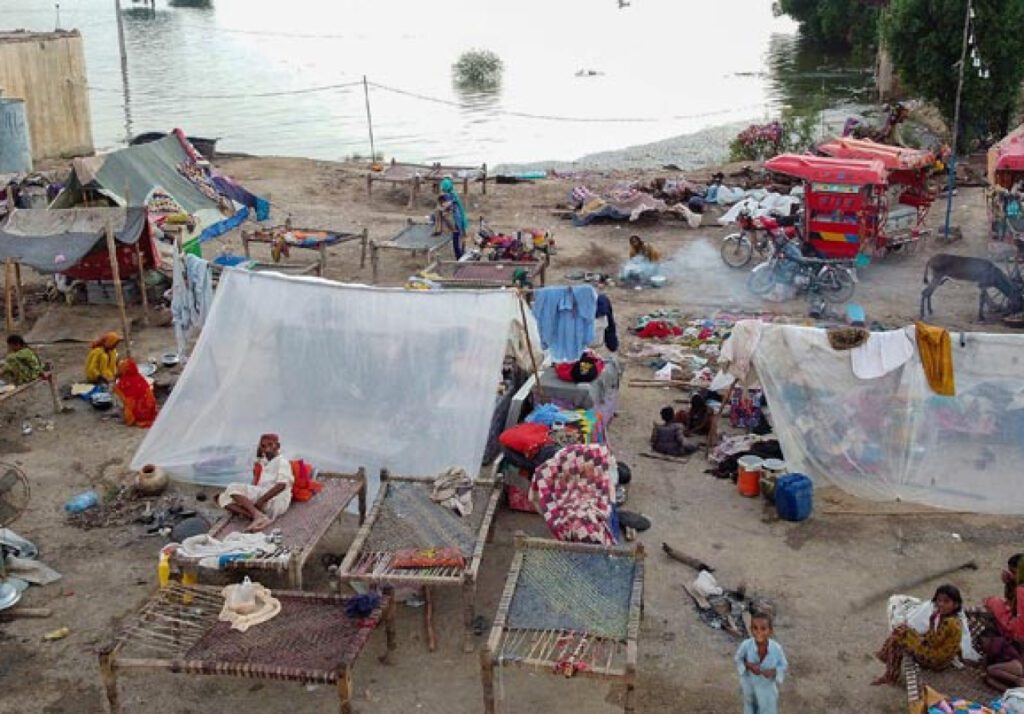
Photo by Reuters
One of the most dangerous repercussions of inadequate sanitation is the practice of Open Defecation (OD) which is still widely practised globally, WHO reveals that over 494 million people around the world are forced to resort to defecating in the open.
This practice has multifaceted negative impacts affecting the physical and psychological health of those who practise it. The absence of sanitation infrastructure and hygiene facilities, especially as a result of the destruction caused by floods in Pakistan, has dangerously increased the incidence of Open Defecation in the country. Even prior to this climatic disaster, more than 22.2 million people in Pakistan have inadequate access to sanitation and hygienic toilets (UNICEF, 2020)
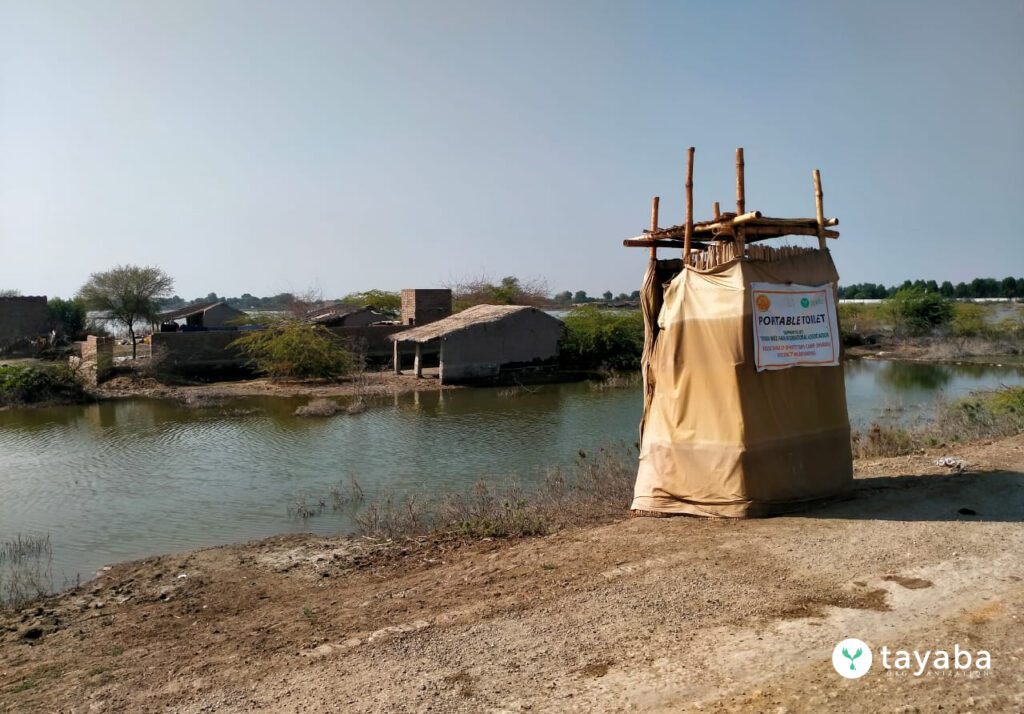
Photo by Tayaba Organisation – All Rights Reserved
Tayaba Organisation strongly believes that safe and sustainable sanitation can not only improve public health and well-being but simultaneously create avenues of growth for the impoverished communities most impacted by the sanitation crisis. Under its flood relief campaign, Tayaba has introduced sustainable initiatives to promote sanitation and hygienic practices.
These include Help-2-Others (H2O) Pads; biodegradable and reusable cloth pads, H2O Soaps; recycled and repurposed soaps, and most importantly, H2O Portable Toilets,
which are equipped with an environmentally and economically sustainable structure and a well-designed drainage and privacy system, prepared with locally-sourced and eco-friendly materials such as bamboo, ensuring safe sanitation and hygiene for flood survivors. Tayaba’s Water, Sanitation, and Hygiene (WASH) solutions are cost-effective, environmentally sustainable, and specially designed to create income-generating opportunities for females, in addition to ensuring safe and sustainable sanitation for marginalized communities.
Written By: Mishaal Zainab
The author of this article is a content associate at the Tayaba Organisation and the opinions reflected in this article are research-based which do not necessarily reflect the views and policies of the Tayaba Organisation.
Published on 19 November, 2022
